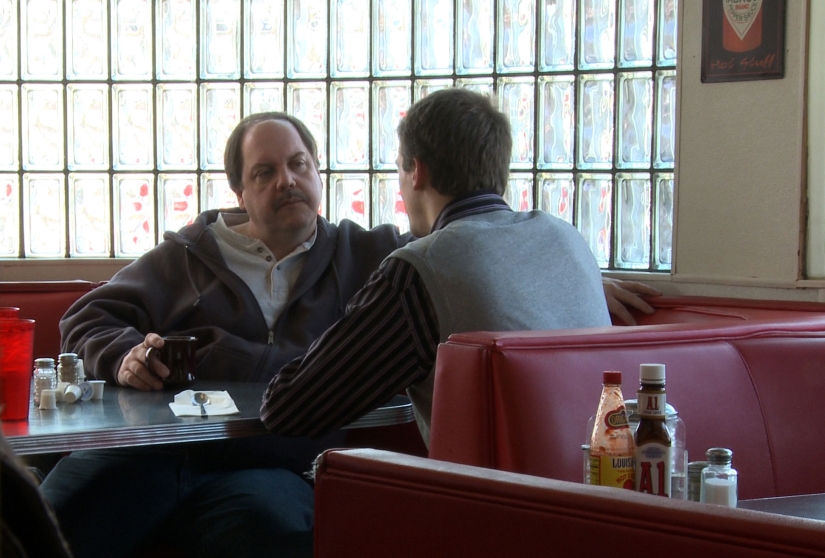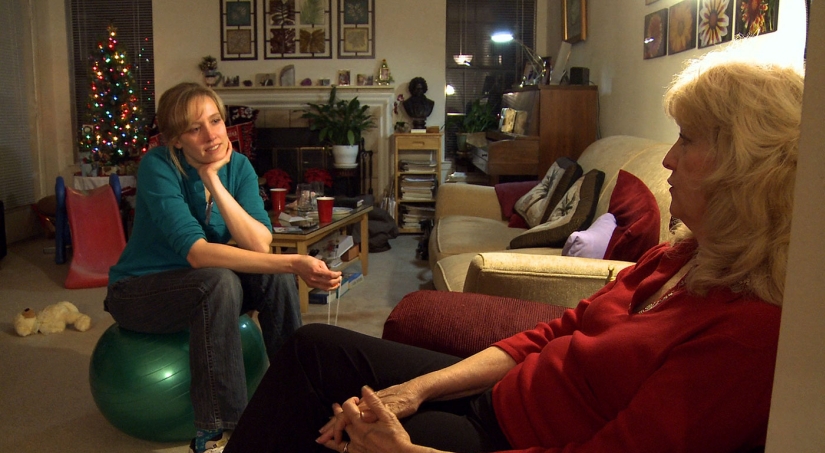Dating can be awful, but there are worse alternatives. Take the act of Christian Courtship, which is the subject of Amy Kohn’s documentary A Courtship. To practice Christian courtship is to save yourself completely for marriage, including your first kiss. The playful snogging in the school yard is done in the devil’s territory.
Christian Courtship gets even worse and more bizarre, ultimately forcing women into passivity as they wait for a knight in shining armor to rescue them from the supposed plight of single life. (It’s fitting that official Courtship material about the sanctity of a first kiss is sold in form of a picture book/fairy tale.) The women who practice Courtship claim that they are submitting to God’s will, but they’re really submitting to an antiquated Biblical patriarchy that justifies their treatment as chattel.
See—way worse than dating.
A Courtship
Director: Amy Kohn
Rating: N/A
Release Date: April 18, 2015 (Tribeca)
Kohn’s primary focus is a woman named Kelly. She lives with the Wright family, a Courtship-loving family in the Grand Rapids, Michigan area. Ron Wright, the head of the household and Kelly’s father-figure, screens all suitors before Kelly even meets them. It’s a cross between speed-date and job interview. Ron goes on more dates with these men than Kelly does because Kelly usually isn’t allowed to meet the suitor unless the man meets Ron’s approval first.
Kelly is 33 years old.
The following becomes apparent while watching A Courtship: Kelly has the same level of maturity about love and relationships as the two Wright daughters, one pre-pubertal and the other adolescent. Unlike the Wright daughters, however, Kelly doesn’t have her first kiss to give, which is a deal breaker for some men in the Courtship community.
Again, Kelly is 33 years old.
When it comes to documentaries like A Courtship, there’s a question of tone to consider. Are we supposed to mock the subjects or be sympathetic and empathetic to them? Kohn manages a bit of both. It’s hard for me not to disparage Courtship as a practice since it’s so backwards, so anti-feminist, so anti-modernity. Courtship robs women of agency and, as a theological disagreement in the film shows, devalues their personal beliefs and personhood.
It’s also hard for me not to be critical of Ron and Dawn Wright, who push Courtship on their household. Yet by allowing Ron and Dawn to discuss their own marriage with candor, Kohn’s discovers the justification for believing in Courtship. Even I’ll admit that Courtship for the Wrights comes from a place of genuine (and suffocating) parental concern. On the other side, it’s difficult to not feel bad for Kelly, who seems so wrapped up in the idea of marriage as something that will complete her existence, so afraid of being a disappointment to someone (though mostly a disappointment to herself) that she’s opted for passivity. For her, it’s better that passivity than the vulnerability that’s necessary to love someone.
Kohn follows Kelly to visit her mother’s house, where we learn a little bit more about Kelly’s upbringing and her parents’ relationship. There’s a home movie of Kelly, just a little girl, sitting on a ball and bouncing up and down with joy, carefree. When Kelly tells her mom about Courtship, her mother offers one of the documentary’s few dissenting opinions about the practice. During this discussion, Kelly sits on a yoga ball in a way that’s a little too much like the home movie of her as a child. I’m hesitant to psychoanalyze, but the scene sadly makes sense.


